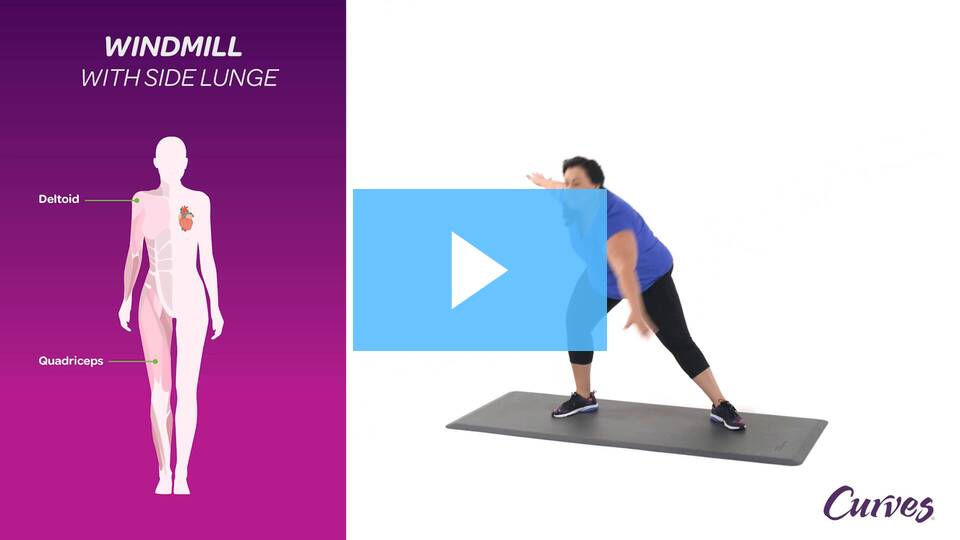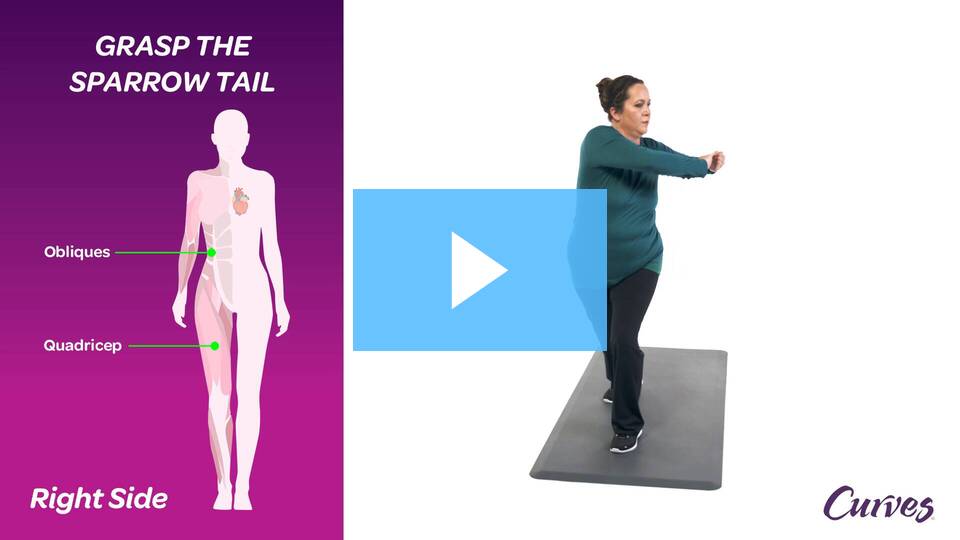In this article:
Nearly every resource will tell you that exercise is vital for our health and wellbeing. However, for people living with an autoimmune condition like Hashimoto's hypothyroidism, sustaining a certain level of physicality for a long duration can be quite challenging. And yet, if people with hypothyroidism do not get enough exercise, that can exacerbate their symptoms, also. It is a vicious cycle. Ahead, learn about how you can overcome exercise intolerance with some tips from our friends at Curves Fitness.
Everyone reaches a point during exercise where they physically max out. While that threshold differs between people, most people can sustain their maximum effort for at least a little while. But, people with chronic health conditions like heart problems and autoimmune disorders may not be able to max out their exercise potential without suffering adverse consequences.
Of course, all people will experience some muscle soreness and fatigue after effective exercise, but people with exercise intolerance may feel physically sick after exercising. In addition, those living with autoimmune disorders are prone to feeling more severe and unusual discomforts during and after exercise and may be left feeling ill for several days to follow.
Common symptoms of exercise intolerance include:
- Severe or unusual pain
- Fatigue
- Autoimmune flare-ups
- Nausea
- Vomiting
- Flu-like symptoms
People who live with Hashimoto's hypothyroidism may think they should be able to exercise like everyone else or "like they used to." However, the reality is that they may not be able to exercise in this way due to exercise intolerance. Autoimmunity lowers your capacity to handle extra stress on the body, which is essentially the purpose of exercise: to add pressure on your body to create change. However, too much stress can trigger inflammation in the body.
Stress also directly affects thyroid function. When the body is stressed, the adrenal glands produce cortisol. Studies suggest that elevated levels of thyroid-stimulating hormone (TSH) are associated with high levels of cortisol.
Where people without exercise intolerance feel sore for a day or two after working out, people who have exercise intolerance can feel sickly for several days to even weeks after a workout that pushes them too far.
Hypothyroidism is a condition in which the thyroid gland does not produce enough thyroid hormone. This condition is most commonly caused by Hashimoto's disease, an autoimmune condition where the immune system mistakenly attacks the thyroid gland.
The thyroid is the butterfly-shaped gland at the base of your neck. As part of the endocrine system, the thyroid gland produces hormones that regulate your body's energy use, along with many other vital functions.
When your thyroid hormone production drops, your body processes slow down and change, affecting essentially every system in your body. Undiagnosed thyroid disease puts patients at risk for other ailments, such as cardiovascular diseases, osteoporosis, and infertility.
Common symptoms of hypothyroidism include:
- Chronic fatigue
- Low heart rate
- Weight gain
- Muscle aches and weakness
- Depression
- Constipation
One would think that exercise would be an excellent remedy for these symptoms—and it can be, in moderation!
Impaired cardiovascular function in thyroid patients is one of the leading causes of exercise intolerance. The heart is sensitive to thyroid hormone levels, and even a slight thyroid hormone imbalance can cause changes in cardiovascular performance. Thyroid hormones can significantly decrease the strength of respiratory and skeletal muscles, and the body may not be able to keep up with incremental effort. You might feel like you "crash" after exercise.
The heart serves as the body's pump that distributes blood to all of your organs and tissues. Anything that compromises its ability to pump blood effectively can make it downright difficult to move your body, meaning that it is harder to get blood to your lungs for oxygenation. It is equally hard to distribute that oxygen-rich blood to your muscles to make them contract during exercise.
People without hypothyroidism but who contract an acute illness or infection may also experience exercise intolerance.
Whether you have a chronic illness or not, every human being needs exercise to keep their muscles and organs healthy. Indeed, exercise is one of the best ways to prevent chronic diseases and is a great way to prevent your health from worsening if you have a health complication.
But, how do you work out if working out makes you feel sick? The answer is to safely exercise each day doing the *right* kinds of exercises. We teamed up with Curves, a world leader in women's fitness, to bring you some fresh inspiration for types of workouts that can help to prevent adverse exercise outcomes.
All of these movements are available in full 30-minute, at-home workout videos with Curves On Demand.
Strength training
Moderate strength training such as hydraulic resistance or using resistance bands has many benefits. Strength training can help boost your energy levels and improve your metabolism. Muscle is the most metabolically active tissue in the body. Therefore, the more muscle mass you have, the more calories you are burning every day.
Body basics
Functional bodyweight exercises often mimic movements we perform in everyday activities. These movements strengthen our muscles utilizing our body weight. The Curves Walking Classes are a great way to get in extra steps during strength training.
Balance/yoga
Moderate to low impact exercises like yoga can also help strengthen your muscles by holding a static pose works on your muscle endurance. Studies show that yoga also helps to lower stress, which can support the adrenal-thyroid connection. Keep in mind that many people with Hashimoto's hypothyroidism experience hypermobility. This ability to move your joints beyond the normal range of movement may make you good at yoga but can exacerbate your symptoms in the long run. If you practice yoga, be sure to balance it with strength training to keep your muscles strong and joints stabilized.
Tai Chi
Tai Chi Chuan is a type of martial arts that originated from China as a form of self-dense. However, it is now commonly practiced as a form of exercise to revitalize your body and promote health and fitness. This exercise integrates leg, core, and arm movements in fluid motions to increase blood flow. Much like yoga, all movements in Tai Chi begin and end with the breath. Some of the benefits of practicing Tai Chi may be better strength, coordination, balance, and flexibility. This practice may also reduce stiffness and joint pain and reduces stress with an overall feeling of centered calmness.
Before you throw on your gym clothes and hop out the door, we have a few additional tips for exercising with Hashimoto's thyroiditis.
Firstly, it is essential to check in with your thyroid doctor to ensure your thyroid hormone levels are stable. Exercising is much easier to stick with if you have a sufficient thyroid hormone circulating in your bloodstream.
Secondly, recovery is essential. Most of our healing and tissue regeneration comes from sleep, so getting plenty of sleep every night is vital for helping your muscles recover and reduce inflammation.
Thirdly, you have to meet your exercise habits with a healthy diet. Your body needs the right type of fuel to perform well. And because certain foods can exacerbate inflammation, it is important to avoid inflammatory foods from worsening your Hashimoto's symptoms.
Meet with a Paloma Health online thyroid doctor to make sure your thyroid is ready for exercise. And when it comes time to get physical, Curves On Demand offers 30-minute at-home exercise classes to work out your total body without burning out.



.webp)

















